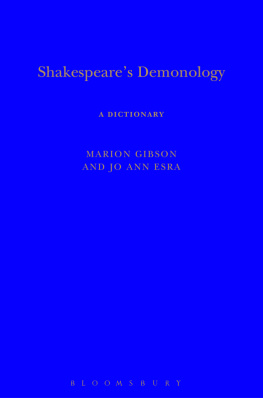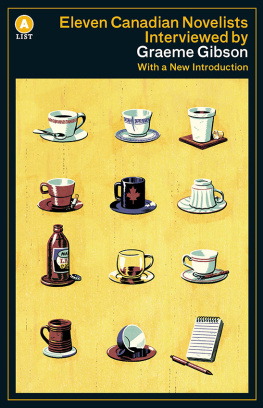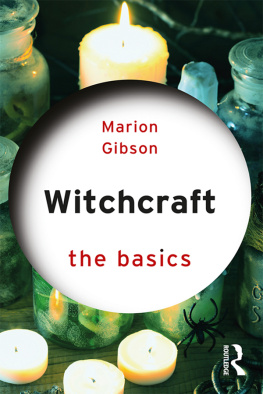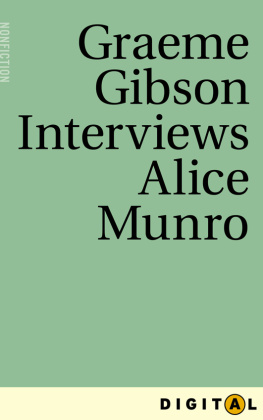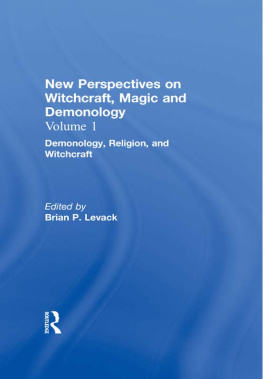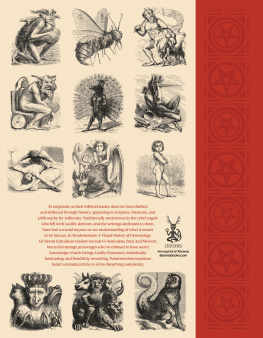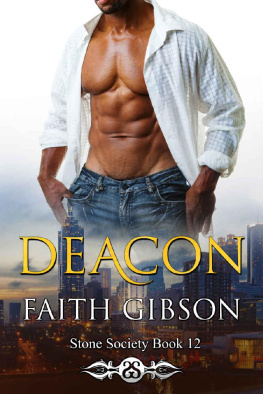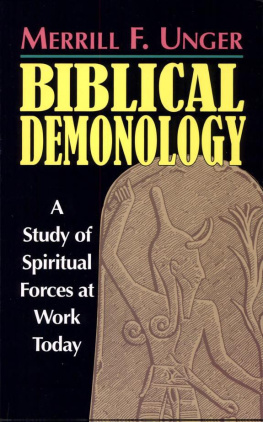Gibson Marion - Shakespeares Demonology
Here you can read online Gibson Marion - Shakespeares Demonology full text of the book (entire story) in english for free. Download pdf and epub, get meaning, cover and reviews about this ebook. year: 2014;2011, publisher: Bloomsbury Publishing Plc, genre: Religion. Description of the work, (preface) as well as reviews are available. Best literature library LitArk.com created for fans of good reading and offers a wide selection of genres:
Romance novel
Science fiction
Adventure
Detective
Science
History
Home and family
Prose
Art
Politics
Computer
Non-fiction
Religion
Business
Children
Humor
Choose a favorite category and find really read worthwhile books. Enjoy immersion in the world of imagination, feel the emotions of the characters or learn something new for yourself, make an fascinating discovery.
- Book:Shakespeares Demonology
- Author:
- Publisher:Bloomsbury Publishing Plc
- Genre:
- Year:2014;2011
- Rating:3 / 5
- Favourites:Add to favourites
- Your mark:
- 60
- 1
- 2
- 3
- 4
- 5
Shakespeares Demonology: summary, description and annotation
We offer to read an annotation, description, summary or preface (depends on what the author of the book "Shakespeares Demonology" wrote himself). If you haven't found the necessary information about the book — write in the comments, we will try to find it.
Shakespeares Demonology — read online for free the complete book (whole text) full work
Below is the text of the book, divided by pages. System saving the place of the last page read, allows you to conveniently read the book "Shakespeares Demonology" online for free, without having to search again every time where you left off. Put a bookmark, and you can go to the page where you finished reading at any time.
Font size:
Interval:
Bookmark:

Shakespeares Demonology
A Dictionary
ARDEN SHAKESPEARE DICTIONARIES
SERIES EDITOR
Sandra Clark (Birkbeck College, University of London)
Class and Society in Shakespeare Paul Innes
Music in Shakespeare Christopher R. Wilson and Michela Calore
Shakespeares Books Stuart Gillespie
Shakespeares Demonology Marion Gibson and Jo Ann Esra
Shakespeare and the Language of Food Joan Fitzpatrick
Shakespeares Legal Language B. J. Sokol and Mary Sokol
Shakespeares Medical Language Sujata Iyengar
Shakespeares Military Language Charles Edelman
Shakespeares Non-Standard English N. F. Blake
Shakespeares Plants and Gardens Vivian Thomas and Nicki Faircloth
Shakespeares Political and Economic Language Vivian Thomas
Shakespeares Religious Language R. Chris Hassel, Jr
Shakespeares Theatre Hugh Macrae Richmond
FORTHCOMING TITLES:
Shakespeares Insults Nathalie Vienne-Guerrin
Shakespeare and National Identity Christopher Ivic
Shakespeares Demonology
A Dictionary
Marion Gibson and Jo Ann Esra

Bloomsbury Arden Shakespeare
An imprint of Bloomsbury Publishing Plc
50 Bedford Square | 1385 Broadway |
London | New York |
WC1B 3DP | NY 10018 |
UK | USA |
www.bloomsbury.com
Bloomsbury is a registered trade mark of Bloomsbury Publishing Plc
Marion Gibson and Jo Ann Esra, 2014
Marion Gibson and Jo Ann Esra have asserted their right under the Copyright, Designs and Patents Act, 1988, to be identified as Author of this work.
All rights reserved. No part of this publication may be reproduced or transmitted in any form or by any means, electronic or mechanical, including photocopying, recording, or any information storage or retrieval system, without prior permission in writing from the publishers.
No responsibility for loss caused to any individual or organization acting on or refraining from action as a result of the material in this publication can be accepted by Bloomsbury or the author.
British Library Cataloguing-in-Publication Data
A catalogue record for this book is available from the British Library.
ISBN: 978-1-4725-0031-1
Library of Congress Cataloging-in-Publication Data
A catalog record for this book is available from the Library of Congress.
Typeset by Fakenham Prepress Solitions, Fakenham, Norfolk NR21 8NN
Contents
Thanks to Sandra Clark, the Series Editor, for asking me to edit Shakespeares Demonology and to Jo Esra, without whose enthusiastic and thorough work as a co-researcher this project would never have been completed. Thanks also to its various editors during its long process of completion, Anna Fleming, Colleen Coalter and Margaret Bartley at Bloomsbury. The students on my annual Witchcraft and Magic in Literature module have always been a great source of inspiration and new questions, and the visiting students attending the University of Exeters international summer school in 2012 were also helpful in allowing me to try out some of this material in a class on Supernatural Shakespeare and responding with thoughtfulness and excitement. The journey towards this project began at Exeter with Gareth Roberts module on Renaissance Magic and matured during my MA studies at the Shakespeare Institute, Stratford-upon-Avon, where Stanley Wells, Martin Wiggins and Susan Brock were particularly helpful in allowing me to begin exploring Shakespeares interest in witchcraft.
Jos Acknowledgements
For enabling me to work on Shakespeares Demonology , I would like to thank the editors at Bloomsbury and Marion Gibson, for inviting me to do so. In both her role as my PhD supervisor, and as co-researcher on this project, Marion has provided consistent encouragement, inspiration and support, and I am deeply indebted to her. My journey here began with Alex Goody, Catherine Spooner and Carolyn D. Williams, and to each I wish to offer my long-overdue gratitude. I would also like to thank my family for their remarkable levels of patience and tolerance, with a special thank-you to my daughter, Evie, for her very helpful and ever-growing enthusiasm for Shakespearean drama.
The Arden Shakespeare Dictionaries aim to provide the student of Shakespeare with a series of authoritative guides to the principal subject areas covered by the plays and poems. They are produced by scholars who are experts both on Shakespeare and on the topic of the individual dictionary, based on the most recent scholarship, succinctly written and accessibly presented. They offer readers a self-contained body of information on the topic under discussion, its occurrence and significance in Shakespeares works, and its contemporary meanings.
The topics are all vital ones for understanding the plays and poems; they have been selected for their importance in illuminating aspects of Shakespeares writings where an informed understanding of the range of Shakespeares usage, and of the contemporary literary, historical and cultural issues involved, will add to the readers appreciation of his work. Because of the diversity of the topics covered in the series, individual dictionaries may vary in emphasis and approach, but the aim and basic format of the entries remain the same from volume to volume.
Sandra Clark
Birkbeck College
University of London
A&C Antony and Cleopatra
AWW Alls Well That Ends Well
AYLI As You Like It
Cor. Coriolanus
Cym. Cymbeline
Err. The Comedy of Errors
Ham. Hamlet
1 HIV The First Part of Henry IV
2 HIV The Second Part of Henry IV
HV Henry V
1 HVI The First Part of Henry VI
2 HVI The Second Part of Henry VI
3 HVI The Third Part of Henry VI
HVIII King Henry VIII
JC Julius Caesar
KJ King John
KL King Lear
LC A Lovers Complaint
LLL Loves Labours Lost
Luc. The Rape of Lucrece
Mac. Macbeth
MAdo Much Ado About Nothing
MM Measure for Measure
MND A Midsummer Nights Dream
MerV The Merchant of Venice
MWW The Merry Wives of Windsor
Oth. Othello
Per. Pericles
PP The Passionate Pilgrim
PT The Phoenix and the Turtle
RII King Richard II
RIII King Richard III
R&J Romeo and Juliet
Shrew The Taming of the Shrew
Son. Sonnets
T&C Troilus and Cressida
Temp. The Tempest
TGV The Two Gentlemen of Verona
Tim. Timon of Athens
Tit. Titus Andronicus
TN Twelfth Night
TNK The Two Noble Kinsmen
V&A Venus and Adonis
WT The Winters Tale
Fates and Destinies and such odd sayings, the Sisters
Three and such branches of learning
( The Merchant of Venice 2.02.624)
A witch, a quean, an old cozening quean!
We are simple men; we do not know whats brought to pass
under the profession of fortune-telling. She works by
charms, by spells, by th figure, and such daubry as this
is, beyond our element.
( The Merry Wives of Windsor 4.02.1728)
This dictionary of Shakespeares demonological language positions his works in a setting that was unfashionable for much of their afterlives and has only recently regained its position as a necessary scholarly context for reading them.
To begin with a definition, demonology is not just the study of demons, although its early modern practitioners (demonologists) were deeply interested in devils and their supposed operation in the world. But in deciding which kinds of event or phenomenon were actually demonic and which were natural or divine (and all three were overlapping categories) demonologists also had to discuss all sorts of creatures and powers that would be very unlikely to be described as demonic either today or even by a consensus of demonologists or non-demonologists in early modern societies. Surviving evidence suggests that few people of Shakespeares time would have been completely happy to dismiss (to pick some random examples) fairies, ghosts and mermaids as demonic although demonologists routinely discussed them. Many people would have contested the idea that the apparition of a dead relative, or a harmless sea-creature, could be the work of the devil. Of course, this depended on what one thought a ghost or a mermaid let alone a fairy to be. There were many factors to consider. Was it possible for a human spirit to revisit the living, leaving its body behind in the grave? Or did the body come too? And where did the spirit come from ? Heaven? Hell? Purgatory? Likewise, was a mermaid a flesh and blood hybrid human life-form, or a sea monster? Was it simply a poorly perceived seal or big fish glimpsed in the surf by frightened sailors? Was it an elemental nymph of some kind, or a devilish illusion leading the mariners to their doom? In summary, could such diverse phenomena as mermaids, ghosts and fairies really be simply pigeonholed as demonic illusions, created to trap human beings into a misunderstanding of Gods universe and lead them astray? Not all demonologists thought so, although some did, and certainly there would have been a wide array of differing understandings of such phenomena in Shakespeares auditorium at each performance and among the readership of his poems.
Font size:
Interval:
Bookmark:
Similar books «Shakespeares Demonology»
Look at similar books to Shakespeares Demonology. We have selected literature similar in name and meaning in the hope of providing readers with more options to find new, interesting, not yet read works.
Discussion, reviews of the book Shakespeares Demonology and just readers' own opinions. Leave your comments, write what you think about the work, its meaning or the main characters. Specify what exactly you liked and what you didn't like, and why you think so.

